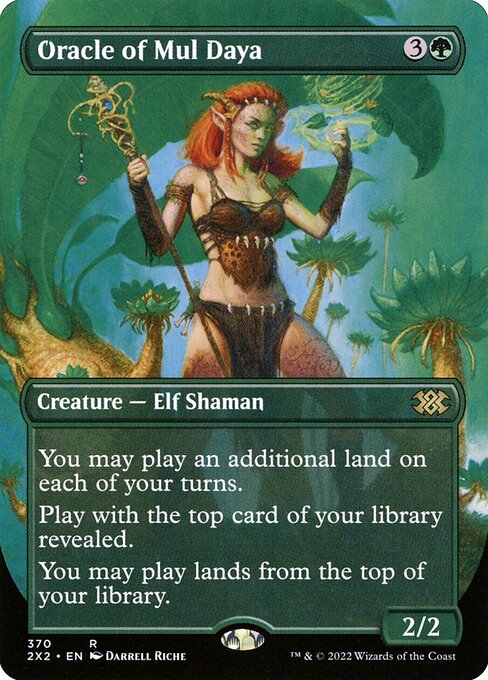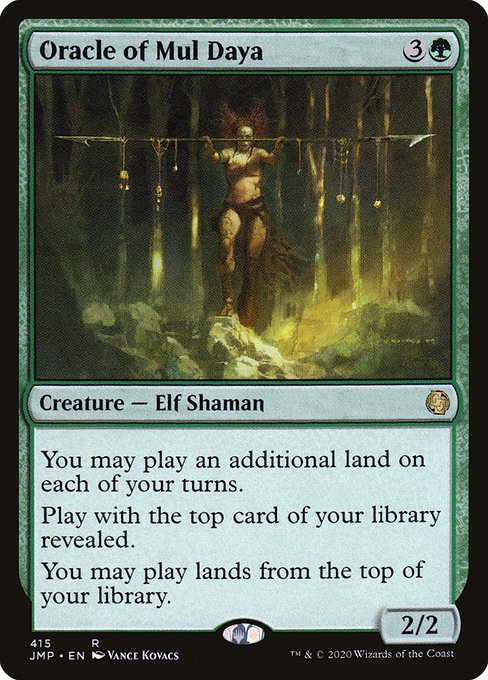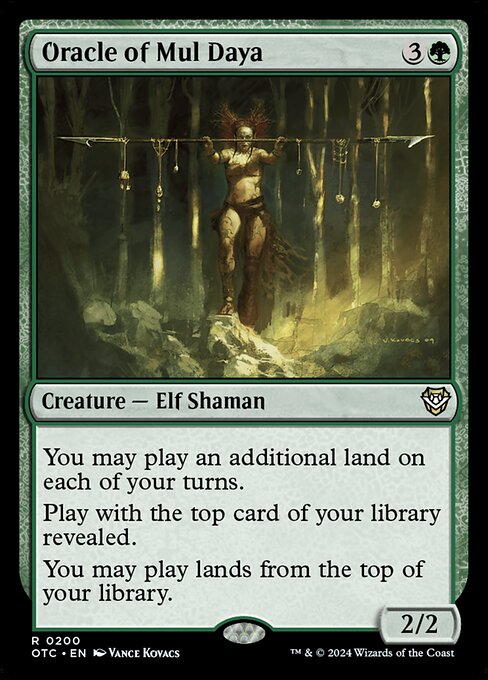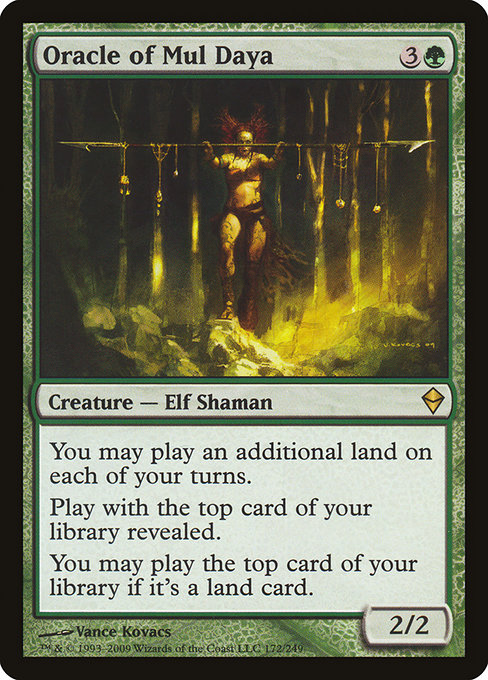standard
future
historic
gladiator
pioneer
explorer
modern
legacy
pauper
vintage
penny
commander
brawl
alchemy
paupercommander
duel
oldschool
premodern
Rulings
If you control more than one Oracle of Mul Daya, the effects of their first abilities are cumulative. If you control two, for example, you can play three lands on your turn.
If you play your first land of the turn from the top of your library, and the new top card is another land card, you can play that one too.
Oracle of Mul Daya doesn’t change the times when you can play a land card from the top of your library. You can play a land only during your main phase when you have priority and the stack is empty. Doing so counts as one of your land plays for the turn.
The top card of your library isn’t in your hand, so you can’t suspend it, cycle it, discard it, or activate any of its activated abilities.
When playing with the top card of your library revealed, if an effect tells you to draw several cards, reveal each one before you draw it.
If the top card of your library changes while you’re casting a spell, playing a land, or activating an ability, the new top card won’t be revealed until you finish doing so.
If you play your first land of the turn from the top of your library, and the new top card is another land card, you can play that one too.
Oracle of Mul Daya doesn’t change the times when you can play a land card from the top of your library. You can play a land only during your main phase when you have priority and the stack is empty. Doing so counts as one of your land plays for the turn.
The top card of your library isn’t in your hand, so you can’t suspend it, cycle it, discard it, or activate any of its activated abilities.
When playing with the top card of your library revealed, if an effect tells you to draw several cards, reveal each one before you draw it.
If the top card of your library changes while you’re casting a spell, playing a land, or activating an ability, the new top card won’t be revealed until you finish doing so.
Rulings
If you control more than one Oracle of Mul Daya, the effects of their first abilities are cumulative. If you control two, for example, you can play three lands on your turn.
If you play your first land of the turn from the top of your library, and the new top card is another land card, you can play that one too.
Oracle of Mul Daya doesn’t change the times when you can play a land card from the top of your library. You can play a land only during your main phase when you have priority and the stack is empty. Doing so counts as one of your land plays for the turn.
The top card of your library isn’t in your hand, so you can’t suspend it, cycle it, discard it, or activate any of its activated abilities.
When playing with the top card of your library revealed, if an effect tells you to draw several cards, reveal each one before you draw it.
If the top card of your library changes while you’re casting a spell, playing a land, or activating an ability, the new top card won’t be revealed until you finish doing so.
If you play your first land of the turn from the top of your library, and the new top card is another land card, you can play that one too.
Oracle of Mul Daya doesn’t change the times when you can play a land card from the top of your library. You can play a land only during your main phase when you have priority and the stack is empty. Doing so counts as one of your land plays for the turn.
The top card of your library isn’t in your hand, so you can’t suspend it, cycle it, discard it, or activate any of its activated abilities.
When playing with the top card of your library revealed, if an effect tells you to draw several cards, reveal each one before you draw it.
If the top card of your library changes while you’re casting a spell, playing a land, or activating an ability, the new top card won’t be revealed until you finish doing so.
Your collection? Your decks?
Want to manage your collection and/or create decks?
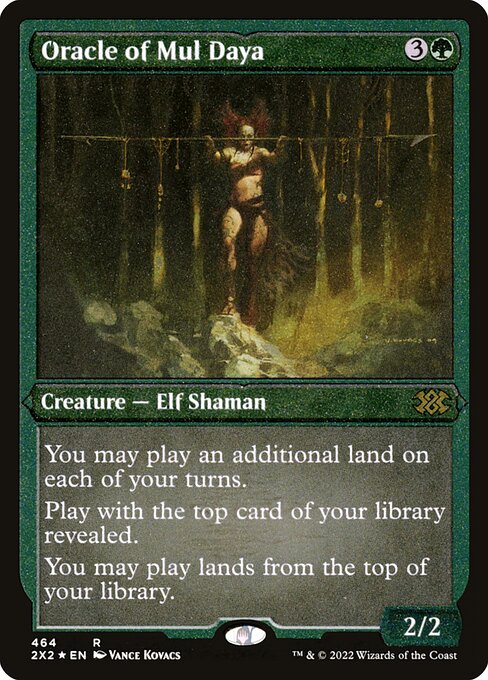

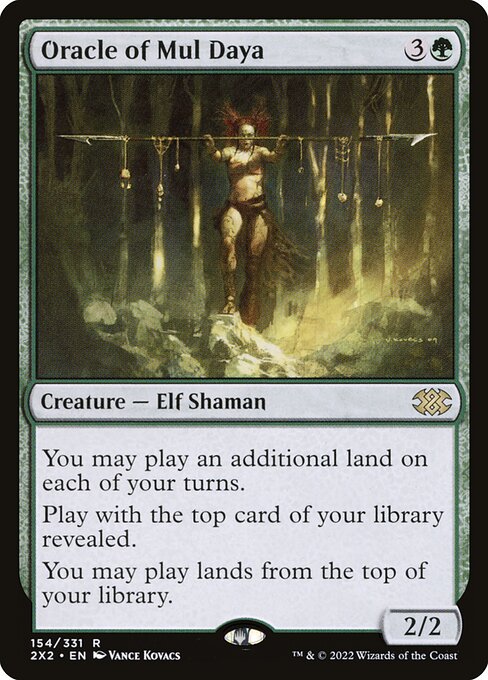
 0
0
 4.94€
4.94€
